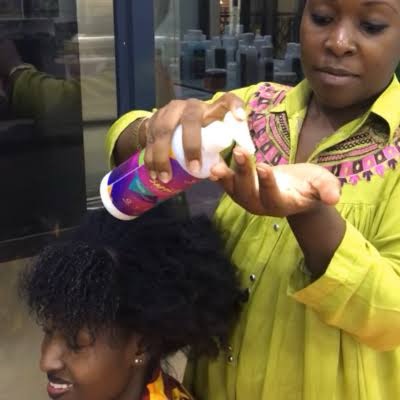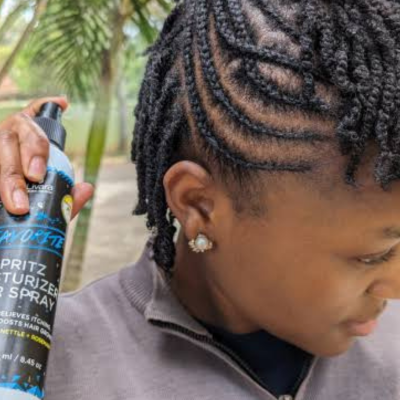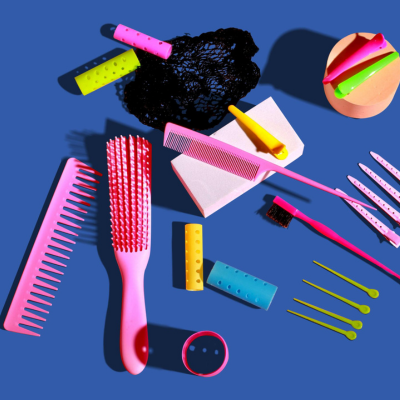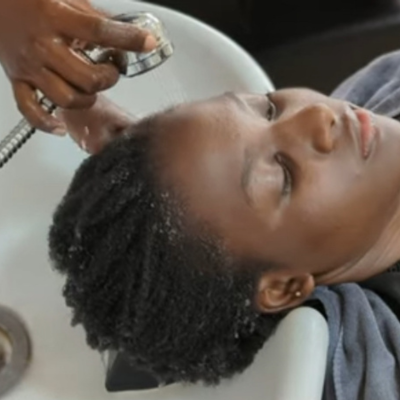- Support 24/7
- +1 (480) 468-4543
- livara@mylivara.com
The Truth About Sleeping with Deep Conditioner
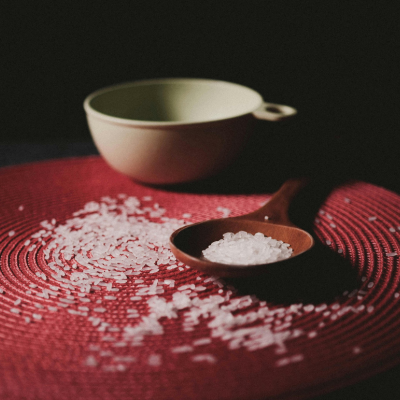
Rice Water and Low Porosity Hair: What You Need To Know
July 9, 2024
The Link Between Vitamins, Minerals, and Hair Loss: Everything You Need To Know
July 12, 2024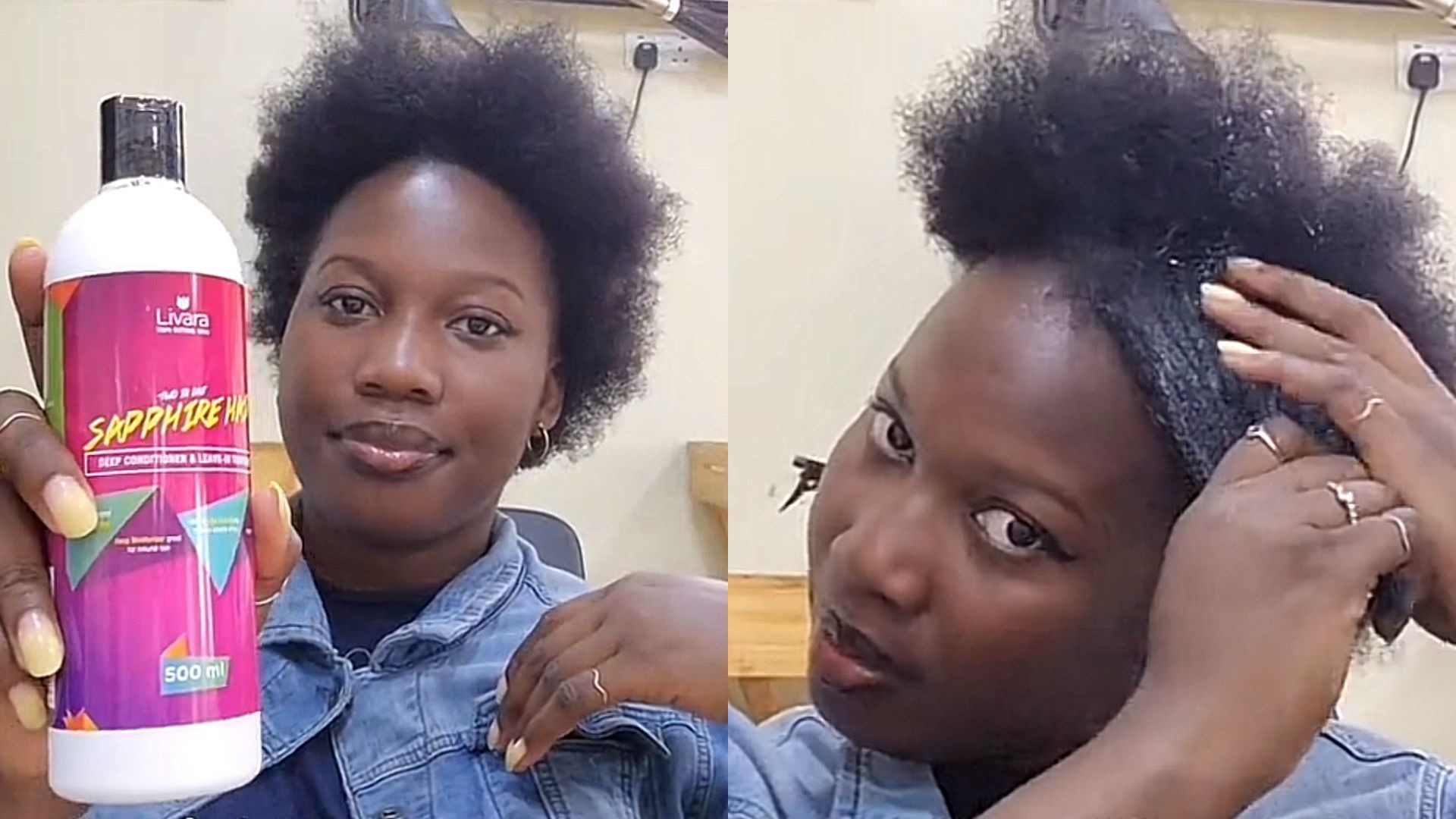
Deep conditioning is undoubtedly one of the best things you could ever do for your natural hair. The intense incorporation of moisture is everything you need to have soft, manageable hair. While the idea of leaving deep conditioner in for a longer time—overnight—might seem like it would give you super soft hair, it may not be the best thing to do after all. Much like what happens if you soak noodles in water for too long, sleeping with deep conditioner in your hair overnight can leave your hair swelling up with moisture and feeling mushy and soggy—probably much softer than you would have liked. This result is more commonly known as moisture overload.
Deep conditioners are usually designed to work within a timeframe of 20-30 minutes. Leaving them on longer than recommended can lead to unexpected results. Imagine going to bed with high hopes for soft, manageable hair, only to wake up with strands that feel like overcooked ramen noodles. That over-saturation isn’t just a minor inconvenience; it can lead to significant hair issues. Moisture overload can make your hair overly elastic and prone to breakage, far from the strong, healthy locks you were aiming for. And let’s be clear: low porosity hair doesn’t get a free pass on this one. Whether your hair is low, medium, or high porosity, leaving deep conditioner in overnight can lead to more problems than it solves. Read on as we explain in greater detail what really happens to your hair when you leave deep conditioner in all night and why it’s not a good idea, even if you have low porosity hair.
The Science of Deep Conditioning
What is Deep Conditioning?
Deep conditioning treatments are designed to deliver intense hydration and nutrients to the hair shaft. These products typically contain rich, moisturizing ingredients like natural oils, butters, and proteins that work to repair damage, strengthen the hair, and enhance its overall health and appearance.
How Deep Conditioners Work
Deep conditioners work by penetrating the hair cuticle, the outermost layer of the hair strand. Once inside, they deliver moisture and nutrients to the inner layers of the hair, helping to repair damage and improve the hair’s strength and elasticity. The key to effective deep conditioning is the balance of time and penetration.
The Risks of Overnight Deep Conditioning
Deep conditioners are formulated to hydrate and nourish the hair deeply within a specific timeframe, typically 20-30 minutes. Leaving them on overnight can cause problems for your strands. Here’s why:
- Excessive Absorption: Overnight exposure to deep conditioner can cause the hair’s cuticle to swell excessively, absorbing too much moisture. This can result in hair that feels overly soft, limp, and prone to breakage—much like that overcooked ramen analogy.The excess saturation brought about by deep conditioning for too long is scientifically referred to as “hygral fatigue.” This weakens the hair shaft, making it more susceptible to breakage and causing a loss of elasticity.
- Difficulty in Rinsing: Deep conditioners are much richer compared to other conditioners, and therefore meant to be rinsed out after a certain period to prevent weighing down the hair. Leaving them in too long can make thorough rinsing challenging, leaving behind residue that weighs down the hair and attracts dirt.
- Potential for Buildup: Deep conditioners are typically thicker and richer than regular conditioners. Leaving them on for extended periods can lead to product build-up, weighing down the hair and making it appear limp and greasy.
- Flattened Curls: For curly hair, leaving in deep conditioner overnight can loosen or weigh down the curl pattern.
Why Low Porosity Hair is No Exemption to These Risks
Low porosity hair is characterized by tightly packed cuticles that make it difficult for moisture and products to penetrate. While this structure provides natural resilience against damage, it also means that too much moisture can easily become trapped, leading to issues like moisture overload, limp curls that break easily as a result. Here’s why low porosity hair is particularly vulnerable to the risks of overnight deep conditioning:
- Slow Absorption: Because low porosity hair takes longer to absorb products, the prolonged exposure of overnight conditioning can lead to an excessive amount of product sitting on the hair’s surface.
- Product Build-Up: The resistant cuticle structure makes it harder for products to penetrate, causing them to build up on the hair surface and leading to a greasy, heavy feel.
- Moisture Lock-In: Once excess moisture gets in, it can be difficult to get out, resulting in over-moisturized, mushy hair that breaks easily and lacks elasticity.
Best Practices for Deep Conditioning Hair
To ensure your deep conditioning treatments benefit rather than harm your hair, consider these best practices:
1. Follow Manufacturer Instructions: Always adhere to the recommended time guidelines provided by the deep conditioner manufacturer, which is usually 20-30 minutes. This ensures your hair receives optimal hydration and repair without risking over-moisturization.
2. Use Lighter Alternative For Overnight Conditioning: If you prefer leaving deep conditioner on for an extended period, consider using a lighter alternative like a leave-in conditioner. Leave-in conditioners are lighter than deep conditioners and designed for longer wear.
3. Use Gentle Heat: Enhance deep conditioner penetration and eliminate the need to have it in for a longer time than needed by applying gentle heat. You can generate this heat by covering your hair with a plastic cap or shower cap (for more heat, wrap a warm towel around the plastic cap), or sit under a hooded dryer with appropriate heat settings. This aids in opening the hair cuticle slightly for better absorption.
4. Thorough Rinsing: After the recommended treatment time, thoroughly rinse the deep conditioner from your hair using lukewarm water. Follow with a final cool rinse to seal the hair cuticle and enhance shine.
5. Maintain Moisture and Seal it In: Follow deep conditioning treatments with a leave-in conditioner to maintain optimal hydration levels and seal in the moisture by applying a natural oil or butter of your choice.
Extra Tips:
- Clarify your hair occasionally: This removes product build-up from regular styling products and allows the deep conditioner to work more effectively. Use a nourishing clarifying shampoo like the Tsavorite Clarifying Treatment Hair Shampoo.
- Deep condition on damp, not soaking wet hair: This helps prevent over-saturation.
Conclusion
While the allure of overnight deep conditioning may seem enticing, especially for achieving softer hair, it’s important to consider the specific needs of your hair type. By understanding the science behind your hair’s structure and following the above tips for deep conditioning, you can ensure that your deep conditioning routine supports healthy, vibrant hair without the risk of moisture overload or product build-up. Remember, a mindful approach to hair care yields the best results—because beautiful hair is healthy hair, no matter the type or texture. Remember, you are a gem.
